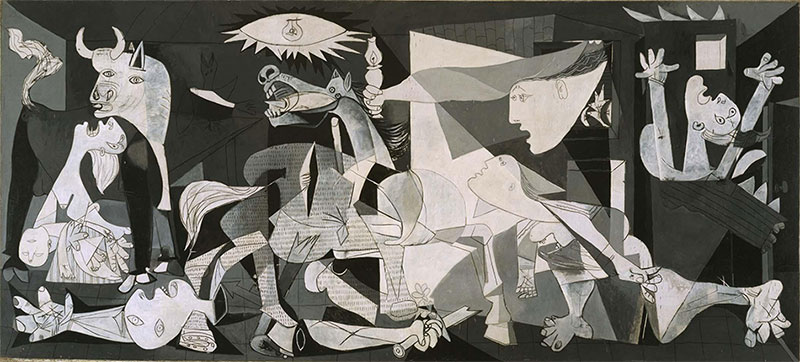A esquerda radical no período pós-2009: nada de (muito) novo em Portugal?
DOI:
https://doi.org/10.15448/2178-3748.2016.1.22961Palavras-chave:
Esquerda radical, Portugal, Crise europeiaResumo
A crise económica que eclodiu nas democracias europeias períféricas a partir de 2008 teve, em vários países da Europa do Sul, consequências graves em termos de estabilidade governativa, satisfação com a democracia e resiliência dos sistemas partidários. Neste contexto, o caso português tem sido apontado como um caso excepcional, visto que o agravamento da situação económica e as suas consequências políticas não provocaram a afirmação eleitoral de novas forças de esquerda radical (como na Espanha e na Grécia). Neste artigo, apresenta-se o panorama da esquerda radical em Portugal e procede-se à análise das causas inerentes a este fenómeno de maior estabilidade do sistema partidário português e a ausência de um fenómeno SYRIZA ou Podemos, recorrendo a explicações de natureza económica, ligadas à cultura política e à natureza do sistema partidário consolidado nas últimas quadro décadas.
Downloads
Referências
AFONSO, Alexandre. Why the next Portuguese election will not see the surge of a left-wing challenger like Podemos or Syriza. Entrada no Blogue da LSE EUROPP: European Politics and Policy. Disponível em: http://blogs.lse.ac.uk/europpblog/2015/08/25/why-the-next-portuguese-election-will-not-see-the-surge-of-a-left-wing-challenger-like-podemos-or-syriza/. Acesso em 6 de Janeiro de 2016. 2015.
AFONSO, Alexandre, ZARTALOUDIS, Sotirios e PAPADOPOULOS, Yannis. How party linkages shape austerity politics: Clientelism and fiscal adjustment in Greece and Portugal during the Eurozone crisis. Journal of European Public Policy, vol. 22, n.º 3, pp. 315-334, 2015.
ALMEIDA, Pedro Tavares, e FREIRE, André. Two overwhelming victories of the left: The 2004 European Election and the 2005 Legislative Election. South European Society and Politics, vol. 10, n.º 3, pp. 451-464, 2005.
BARTELS, Larry. Elections in hard times. Public Policy Research, vol. 19, n.º 1, pp. 44-50, 2012.
BELLUCCI, Paolo. The political consequences of blame attribution for the economic crisis in the 2013 Italian national election. Journal of Elections, Public Opinion and Parties, vol. 24, n.º 2, pp. 243-263, 2014.
BOSCO, Anna, e VERNEY, Susannah. Electoral epidemic: The political cost of economic crisis in Southern Europe, 2010-2011. South European Society and Politics, vol. 17, n.º 2, pp. 129-154, 2012.
ESPÍRITO SANTO, Paula. The 2009 Portuguese parliamentary elections. Electoral Studies, vol. 29, n.º 2, pp. 279-281, 2010.
FERNANDES, Jorge M., e SANTANA PEREIRA, José. Os programas eleitorais das eleições europeias: Análise preliminar das principais dimensões de competição. Relações Internacionais, vol. 41, pp. 81-95, 2014.
FREIRE, André. A esquerda radical em Portugal. In MARCH, Luke e FREIRE, André (Orgs.) A Esquerda Radical em Portugal e na Europa: Marxismo, Mainstream ou Marginalidade? Vila do Conde: QuidNovi, 2012, pp. 105-243.
FREIRE, André, LOBO, Marina Costa, e MAGALHÃES, Pedro. Portugal at the Polls in 2002. Lanham: Lexington Books, 2007.
FREIRE, André, e SANTANA PEREIRA, José. Economic voting in Portugal, 2002-2009. Electoral Studies, vol. 31, n.º 3, pp. 506-512, 2012a.
FREIRE, André, e SANTANA PEREIRA, José. Portugal, 2011: The victory of the neoliberal right, the defeat of the left. Portuguese Journal of Social Sciences, vol. 11, n.º 2, pp. 179-187, 2012b.
FREIRE, André, e SANTANA PEREIRA, José. More second order than ever? The 2014 European Parliament elections in Portugal. South European Society and Politics, vol. 20, n.º 3, pp. 381-401, 2015.
HERNANDEZ, Enrique, e KRIESI, Hanspeter. The electoral consequences of the financial and economic crisis in Europe. European Journal of Political Research. DOI: 10.1111/1475-6765.12122, 2015.
LEWIS-BECK, Michael, e PALDAM, Martin. Economic voting: An introduction. Electoral Studies, vol. 19, n.º 2-3, pp. 112–121, 2000.
LEWIS-BECK, Michael, e STEGMAIER, Mary. Economic determinants of electoral outcomes. Annual Review of Political Science, vol. 3, pp. 183-219, 2000.
LEWIS-BECK, Michael, e STEGMAIER, Mary. American voter to economic voter: Evolution of an idea. Electoral Studies, vol. 28, pp. 625-631, 2009.
LISI, Marco. As Eleições Legislativas no Portugal Democrático, 1975-2015. Lisboa: Assembleia da República, 2015.
LOBO, Marina Costa, SANTANA PEREIRA, José, e SANCHES, Edalina. Relatório síntese da Bússola Eleitoral, 2: A política económica vista pelos eleitores. Unpublished report. Disponível online em: http://marinacostalobo.pt/webwp/wp-content/uploads/2014/11/relat%C3%B3rio-02-da-Bussola-Eleitoral1.pdf, Acesso em 15 de Dezembro de 2016, 2015.
MAGALHÃES, Pedro. After the bailout: Responsibility, policy, and valence in the Portuguese legislative election of June 2011. South European Society and Politics, vol. 17, n.º 2, pp. 309-327, 2012.
MAGALHÃES, Pedro C. Introduction: Financial Crisis, Austerity and Electoral Politics. Journal of Elections, Public Opinion and Parties, vol. 24, n.º 2, pp. 125-133, 2014a.
MAGALHÃES, Pedro C. The elections of the great recession in Portugal: Performance voting under a blurred responsibility for the economy. Journal of Elections, Public Opinion and Parties, vol. 24, n.º 2, pp. 180-202, 2014b.
MARCH, Luke. Os partidos europeus da esquerda radical após a crise: Marxismo, mainstream ou marginalidade? Em MARCH, Luke e FREIRE, André (Orgs.), A Esquerda Radical em Portugal e na Europa: Marxismo, Mainstream ou Marginalidade? Vila do Conde: QuidNovi, 2012, pp. 25-104.
MARSH, Michael, e MIKHAYLOV, Slava. A conservative revolution: The electoral response to economic crisis in Ireland. Journal of Elections, Public Opinion and Parties, vol. 24, n.º 2, pp. 160-179, 2014.
MARTÍN, Irene, e URQUIZO-SANCHO, Ignazio. The 2011 general election in Spain: The collapse of the Socialist Party. South European Society and Politics, vol. 17, n.º 2, pp. 347-363, 2012.
ROMÃO, Filipe Vasconcelos. Podemos e Cuidadanos: O fim do bipartidarismo em Espanha? Relações Internacionais, vol. 45, pp. 81-95, 2015.
SANTANA PEREIRA, José. Portugal. In GAGATEK, Wojciech (org.), The 2009 Elections to the European Parliament: Country Reports. Florença: European University Institute (E-Book), 2010, pp. 143-148.
SANTANA PEREIRA, José (2015). Eleições em tempos de crise: Austeridade, troika e a derrota anunciada do PS nas legislativas de 2011. In LISI, Marco (org.), As Eleições Legislativas no Portugal Democrático, 1975-2015. Lisboa: Assembleia da República, 2015, pp. 257-270.
TORCAL, Mariano. The incumbent electoral defeat in the 2011 Spanish national elections: The effect of the economic crisis in an ideological polarized party system. Journal of Elections, Public Opinion and Parties, vol. 24, n.º 2, pp. 203-221, 2014.
TSATSANIS, Emmanouil, e TEPEROGLOU, Eftichia. Dealignment, de-legitimation and the implosion of the two-party system in Greece: The Earthquake election of 6 May 2012. Journal of Elections, Public Opinion and Parties, vol. 24, n.º 2, pp. 222-242, 2014.
TSIRBAS, Yannis. The January 2015 Parliamentary Election in Greece: Government Change, Partial Punishment and Hesitant Stabilisation. South European Society and Politics. DOI: 10.1080/13608746.2015.1088428, 2015.
VASSELAI, Fabricio, e MIGNOZZETTI, Umberto. The Impacts of International Economic Crises on the Succession of Incumbents in 55 Countries (1960-2011). APSA 2012 Annual Meeting Paper. Disponível em: http://ssrn.com/abstract=2108034, Acesso em 15 de Janeiro de 2016, 2012.
Downloads
Publicado
Como Citar
Edição
Seção
Licença
Direitos Autorais
A submissão de originais para a Oficina do Historiador implica na transferência, pelos autores, dos direitos de publicação. Os direitos autorais para os artigos publicados nesta revista são do autor, com direitos da revista sobre a primeira publicação. Os autores somente poderão utilizar os mesmos resultados em outras publicações indicando claramente a Oficina do Historiador como o meio da publicação original.
Licença Creative Commons
Exceto onde especificado diferentemente, aplicam-se à matéria publicada neste periódico os termos de uma licença Creative Commons Atribuição 4.0 Internacional, que permite o uso irrestrito, a distribuição e a reprodução em qualquer meio desde que a publicação original seja corretamente citada.






